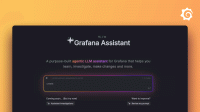This is documentation for the next version of Grafana Alloy Documentation. For the latest stable release, go to the latest version.
Run Alloy as a non-root user in Kubernetes
The Alloy Docker image contains two users:
- A
rootuser. - A non-root user named
alloywith UID473and gid473.
By default, the alloy binary runs as root. This is because some Alloy components like beyla.ebpf require root permissions.
You can configure a non-root user when you deploy Alloy in Kubernetes.
Configure Alloy to run as a non-root user in Kubernetes
Note
Running Alloy as a non-root user won’t work if you are using components like beyla.ebpf that require root rights.
To run Alloy as a non-root user, configure a security context for the Alloy container. If you are using the Grafana Helm chart you can add the following snippet to values.yaml:
alloy:
securityContext:
runAsUser: 473
runAsGroup: 473
configReloader:
securityContext:
# this is the UID of the "nobody" user that the configReloader image runs as
runAsUser: 65534
runAsGroup: 65534This configuration makes the Alloy binary run with UID 473 and GID 473 rather than as root. It also runs the config reloader sidecar as UID 65534 and GID 65534.
Is the root user a security risk?
Not really. The Linux kernel prevents Docker containers from accessing host resources. For example, Docker containers see a virtual file system rather than the host filesystem, a virtual network rather than the host network, a virtual process namespace rather than the host’s processes. Even if the user inside the Docker container is root it can’t break out of this virtual environment.
However, if there was a bug in the Linux kernel that allowed Docker containers to break out of the virtual environment, it would likely be easier to exploit this bug with a root user than with a non-root user. It’s worth noting that the attacker would not only need to find such a Linux kernel bug, but would also need to find a way to make Alloy exploit that bug.



